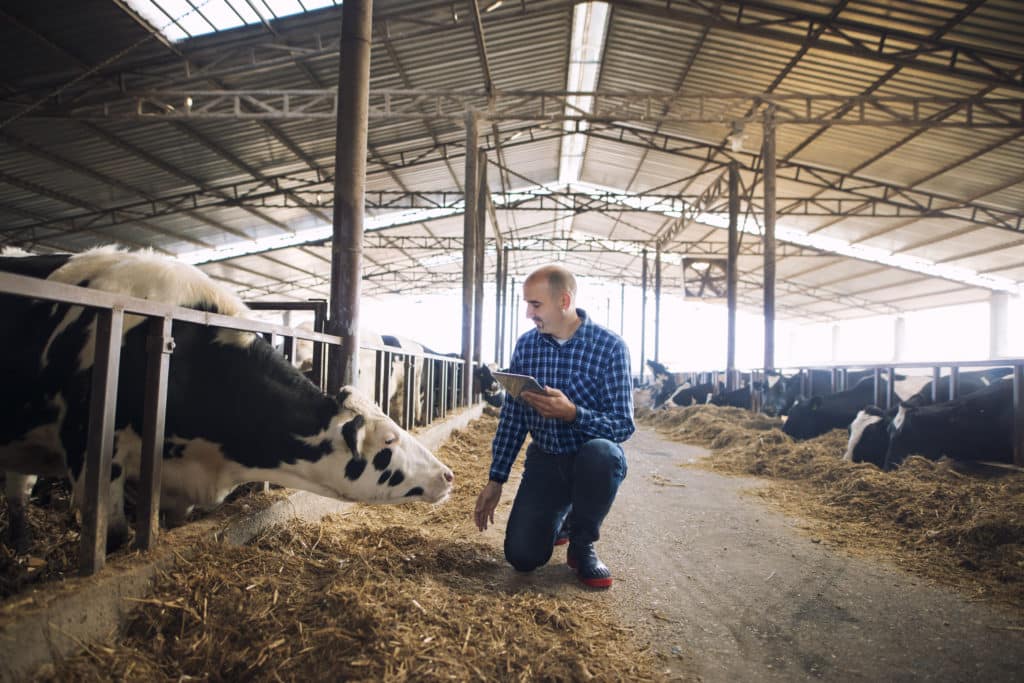Do you need a diploma to set up in farming ?
At a time when the President of the Republic, Emmanuel Macron, is calling for a simplification of standards and administrative constraints, particularly when it comes to setting up a farm, let’s take a look at setting up as a farmer. This is an area where simplification and harmonisation would not be a luxury.
No diploma is required to set up in agriculture or viticulture
The profession of farmer or winegrower is not subject to a compulsory diploma in the same way as those of doctor, lawyer, notary, pharmacist, chartered accountant, etc., where a diploma is essential to practice.
You can set up and take over a farm without a diploma, but it may not be a walk in the park.
The accumulation of standards, their complexity and the arbitrariness of the departmental or regional administration can quickly lead to a certain administrative phobia, even among the most motivated.
The concept of a diploma is particularly important when it comes to obtaining the authorisation to farm and if you wish to apply for aid to help young farmers set up. :
By law, anyone who does not meet certain conditions of professional competence (i.e. having a diploma) or experience, as defined in R-331-2 of the French Rural Code, must apply for authorisation to set up. What’s more, if you exceed a certain threshold you will be obliged to apply for prior authorisation to farm, even if you have a diploma.
The threshold is : 35ha in Brittany, 45ha in Pays de la Loire, 70ha in Normandy and 110ha for Centre-Val de Loire. These thresholds vary enormously depending on the scheme, and each scheme may provide for several thresholds. This is the case for the Nouvelle Aquitaine and Hauts de France regions, for example. But the winner in terms of complexity is the Occitanie region, with 5 different thresholds, two of which are only 1 ha apart. Guadeloupe (10ha) and Réunion (2ha) also have their own structure control thresholds, however there is none for Martinique.
Please note that weighting coefficients are applied to these thresholds, depending in particular on the type of crop (1ha of glasshouse is not worth 1ha of vineyard, which is not worth 1ha of crop taken as a reference).
It is the SDREA (Schéma Directeur Régional des Exploitations Agricoles) in accordance with L312-1 of the Rural Code that sets out the priority rankings. Some master plans give priority to setting up a farm (with agricultural qualifications), as required by L331-1 al 2 of the Rural Code, while others give priority to other factors, such as proximity to livestock buildings. If you don’t have a diploma or sufficient experience, you won’t be given priority, and in most SDREAs you’ll even be at the bottom of the list. This doesn’t mean that you won’t be able to farm, but you could lose some of the land you need for your project when you apply for permission to farm.
Note that some SDREAs are more demanding than others, and in some cases, to be given priority for setting up, you also have to complete the PPP course, which must be validated by the prefect (SDREA Bretagne). So in this region, someone with a diploma enabling them to set up in other regions and who does not complete the PPP course is given a lower priority (rank 10) than an extension (rank 9). In some SDREAs, subsidised installations may be given priority over non-subsidised installations.
When the application for authorisation is submitted to the DDT(M), it will be advertised and anyone can apply for one or more plots. If you don’t have a diploma or don’t meet the regional definition of installation, you risk not being given priority, and not obtaining authorisation to farm on all the plots requested.
Applications for start-up aid for young farmers, where the diploma is one of the compulsory prerequisites (D343-4), along with other criteria such as being under 40 or having completed a PPP course.
How to take over a farm ?
R-331-2 of the French Rural and Maritime Fishing Code stipulates that to meet the conditions of professional capacity or experience, you must :
Or have a diploma covered by article D 343-4 of the rural code, which itself refers to an order dated 18 February 2022.
This decree lists a number of qualifications that meet this first criterion. The list of qualifications ranges from vocational baccalaureates to higher education qualifications such as engineering or veterinary medicine. It should be noted that to be included in this list, the qualifications must be at least European level 4. CAPs and BEPs are level 3 qualifications, so a BEPA (agricultural vocational diploma) is not included in this list, and therefore does not qualify.
| Niveau Européen | Diplômes |
| Niveau 3 | BEPA, BEP, CAP |
| Niveau 4 | Baccalauréat, BPREA |
| Niveau 5 | BTSA, BTS, Ancien DEUG… |
| Niveau 6 | Licence, Licence professionnelle, Maîtrise (M1) |
| Niveau 7 | Master (M2), diplôme d’ingénieur |
| Niveau 8 | Doctorat |
Or have experience, i.e. meet the conditions of professional capacity or experience: have 5 years’ experience, acquired on an area equal to one third of the average regional usable agricultural area as a farmer, family helper, partner farmer, farm employee or farm collaborator, all acquired over the last 15 years.
Note that in regions where the SDREA is less conducive to setting up a farm, it can be difficult to prove that you have the capacity through experience. Again, in the BRITTANY SDREA, agricultural capacity through experience is quite simply not recognised, as it is ranked as priority 9, i.e. after rank 8 extensions.

Article D 343-4 of the French Rural Code also refers to ‘a diploma recognised by a Member State of the European Union or by a State party to the Agreement on the European Economic Area conferring level 4 in agriculture’. There are disparities in treatment between regions or departments, with some contenting themselves with a translated copy of the diploma, provided that it is explicitly agricultural and that the European level is clearly identifiable, while others require the intervention of the DRAAF to recognise the diploma as being equivalent to one of the diplomas on the above list.
If you have a non-EU or non-EEA diploma, you will need to go through the DRAAF recognition procedure, which requires a number of checks that can take some time.
For example, in the case of a divorce, a woman separates from her ex-husband. She wants to set up a new farm on her own. She doesn’t have a level 4 diploma, but she has 10 years‘ experience on the couple’s former farm, since she sacrificed her initial training and career for the couple’s farm. In Brittany , her installation is not a priority; it is even in the lowlands (priority 9) of the scheme after enlargements or even secondary installations. Yet she has been jointly managing a farm for 10 or even 15 years. As for her age, whether she’s over or under 40 is of little importance. In a region like Normandy or the Loire Atlantique, for example, she would have a higher priority, below the number of subsidised installations but above the number of extensions.
You have no qualifications or farming experience
The knowledge and techniques needed to practise farming are important to the success of a project to set up a business. While it is not impossible to succeed without a diploma and experience, it remains very difficult. The possibility of taking over a business with an existing team exists on certain types of farms, vineyards, market gardening, vegetables, etc. If you have the skills, it can be extremely efficient to concentrate on the management and running of these teams, or on the commercial side for businesses that sell direct. On the other hand, these turnkey, well-structured businesses are rather rare and require substantial start-up capital.
The lack of a diploma and/or experience could penalise you in several areas of your project:
As we have already seen: if you want to apply for aids where a diploma is compulsory. Also, when applying for authorisation to farm or anyone with an agricultural qualification could be given priority, depending on the SDREA.
But also in banking matters, where the credit institution may have doubts about the sound technical conduct of your business.
Obviously when it comes to running your business, where a degree and experience are essential.
In addition to traditional initial training, which is the classic route in the first part of one’s life, there are solutions for retraining projects that involve validating diplomas that give the ability :
Through a VAE (recognition of acquired experience), or with a non-agricultural diploma at a sufficiently high level to enable you to pass equivalence tests to complete the missing notions.
Allow around 1 to 2 years (or 6 months for the most dedicated) to obtain one of these equivalences, which can be done remotely but require a significant investment of time. Depending on your professional and family situation, this will take a considerable amount of time.

Louis-Guillaume Rebiere
Head of legal affairs
